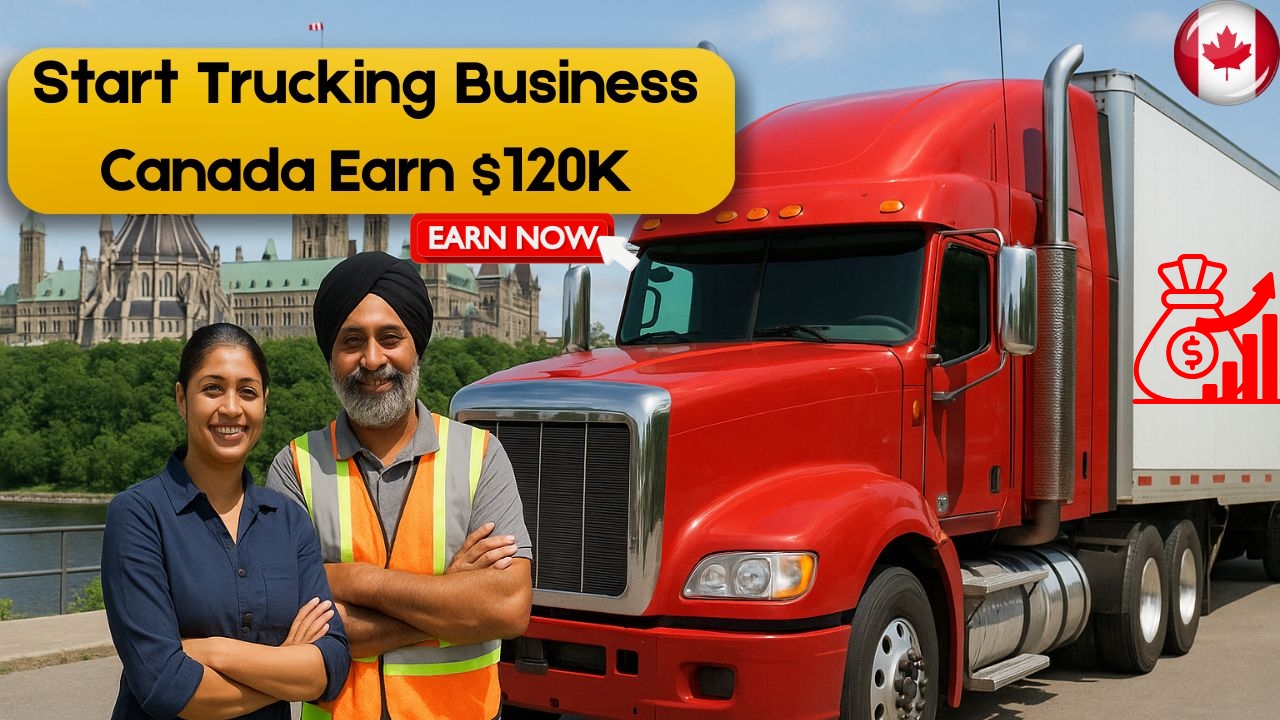The potential of starting a trucking enterprise in Canada in 2025 is gigantic, as independent operators make a lot more than $120,000/year. Trucking is now quite a lucrative small business idea in the country due to the boom of e-commerce, freight demand, and multi-province logistics. Regardless of whether you are a seasoned driver or an investor, the appropriate set up, and the compliance as well as the operational strategy can put you in the right place to achieve success.
The Rationale Why Trucking is Profitable in 2025
The trucking sector in Canada is now estimated at more than 65 billion dollars whereby the transportation of goods and building materials, as well as refrigerated freights has been growing steadily. The Transport Canada statistics show that more than 70 percent of the domestic trade is by road, which increases the pressure on professional operators. The cost of shipping fills the increase, and there is a shortage of licensed drivers, which means that owner-operators will be in demand to charge higher rates, particularly to long-haul and cross-border contracts.
How to Start a Trucking Business in 10 Steps
1. Get Your Licenses and Business Registration
– Receive a Class 1 Commercial Driver’s License (CDL).
– Have the Canada Revenue Agency (CRA) register your company with a Business Number (BN).
– Require an Operating Authority (MC Number) in case you intend to carry goods across the provincial or US borders.
– Become a member to the International Fuel Tax Agreement (IFTA) in order to report the correct use of fuel.
2. Select Niche and Equipment
– Determine your field of operation: long-haul, local freight, heavy haul, or specialized cargo (e.g., temperature-controlled or oversized).
– Buy or lease your first truck – investment of up to $80,000-180,000 depending on the model and the size.
– Fit Electronic Logging Devices (ELDs) when necessary in the National Safety Code in Canada.

3. Safe Insurance and Duty compliance
– Trucking companies need to have commercial liability coverage, which is normally ranging between 5,000-10,000/year based on routes and types of cargo.
– Ensure that you keep logbooks, vehicle inspection records and safety compliance and within CRA and provincial regulations.
4. Find Clients and Construct Routes
– Sign up agreements with logistics service, manufacturers or agriculture exporters to ensure constant loads.
– Find new business using digital freight marketplaces and dispatching systems including Loadlink or TruckStop.
– Have a high level of consistency in the performance of delivery to be able to build long term relationships.
5. Computations of Operating and Profit Margins
– Owner-operators receive gross incomes of between 200,000-250,000 every year, and the average net income is 120,000-150,000 after expenses.
– Due to the fact that all of them are subject to CRA deductions, major costs comprise diesel, insurance, maintenance, and taxes.
Startup Cost Overview
| Step | Expense Category | Estimated Cost (CAD) |
|---|---|---|
| 1 | Registration & Licensing | $500 – $1,200 |
| 2 | Truck Purchase/Lease | $80,000 – $180,000 |
| 3 | IFTA & Safety Permits | $300 – $800 |
| 4 | Insurance | $5,000 – $10,000 annually |
| 5 | Hiring/Training Drivers | $2,000 – $5,000 |
Specialization as a Source of Earning Potential
| Type of Operation | Annual Income (CAD) |
|---|---|
| Long-Haul Freight | $90,000 – $130,000 |
| Refrigerated Transport | $100,000 – $150,000 |
| Oversized or Flatbed Freight | $110,000 – $180,000 |
| Owner-Operator (Independent) | $120,000 – $250,000 |
FAQs
Q1: Do I have to employ workers or can I work alone?
You can start as an owner-operator where you operate your own truck with contracts of your own. When your company expands, you will be able to hire drivers or subcontractors.
Q2: How can one get the quickest access to clients?
Serge freight brokers, join load boards, and develop B2B contracts with suppliers and retail distributors.
Q3: Does the trucking business have any tax benefits?
Yes. CRA enables deductions on fuel, maintenance, leasing, equipment depreciation, and meal, which contribute in reducing taxable income.


